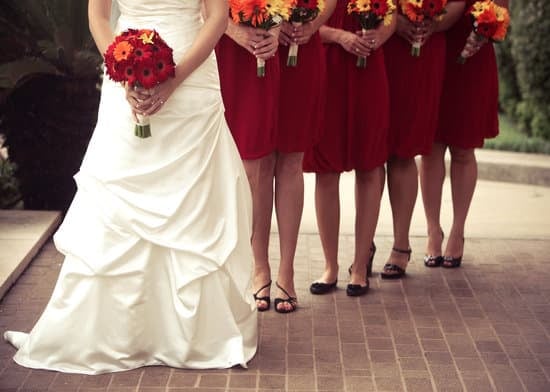The question “Do widowers wear wedding rings?” presents a complex and emotional topic that delves into the customs and traditions of individuals who have experienced the loss of their spouse. The significance of wedding rings for widowers goes beyond mere jewelry, as it carries emotional and symbolic weight. This article aims to explore the various factors that influence widowers’ decisions about wearing their wedding rings after the passing of their spouse.
Understanding the emotional and symbolic importance of the wedding ring for widowers is crucial in unraveling the complexities surrounding this topic. Cultural and religious perspectives also play a significant role in shaping widowers’ choices regarding whether or not to continue wearing their wedding ring. Additionally, individual decisions, practical considerations, symbolism, remembrance, social perceptions, and the potential for finding new love are all elements that contribute to this discussion.
By delving into these aspects, we can gain a deeper understanding of the reasons why some widowers choose to continue wearing their wedding ring while others do not. It is important to approach this topic with sensitivity and empathy, as each individual’s experience with grief and loss is unique. As we navigate through this exploration, it is essential to recognize the deeply personal nature of a widower’s decision regarding their wedding ring.
The Significance of Wedding Rings for Widowers
Emotional Attachment
For many widowers, their wedding ring holds a deep emotional attachment. It serves as a constant reminder of the love and commitment they shared with their late spouse. The wedding ring represents the enduring bond that was formed during marriage, and for some widowers, taking off the ring can feel like severing that connection. The tangible presence of the wedding ring can provide comfort and a sense of closeness to the memory of their spouse.
Symbolic Importance
Additionally, the wedding ring carries a symbolic significance for widowers. It is a visual representation of the vows made on their wedding day – promises of love, fidelity, and partnership.
Many widowers view their wedding ring as a symbol of honor and respect for their late spouse, carrying on their legacy even after they have passed away. The act of wearing the wedding ring can serve as a tribute to the years spent together and a source of strength in coping with grief.
Healing and Closure
Furthermore, for some widowers, wearing their wedding ring is part of their healing process. It provides them with a sense of continuity and stability during a tumultuous time in their lives. By keeping the wedding ring on, they may find solace in maintaining elements of routine and familiarity.
It can also be an expression of ongoing commitment to their late spouse, helping them navigate feelings of loss and find closure in their own time. Overall, the emotional and symbolic significance attached to wearing a wedding ring makes this decision deeply personal for each widower.
Cultural and Religious Perspectives
In many cultures, the tradition of widowers wearing wedding rings varies widely. Some cultures encourage widowers to continue wearing their wedding ring as a symbol of everlasting love and devotion to their late spouse.
For example, in some parts of India, it is not uncommon for widowers to wear their wedding ring indefinitely as a sign of respect and honor for their deceased wife. Similarly, in certain European countries, such as Italy and Greece, it is customary for widowers to continue to wear their wedding ring as a way to pay homage to their marriage and the memory of their partner.
On the other hand, some cultures and religions have specific customs regarding widowers and the wearing of wedding rings. In some Jewish traditions, widows are more likely than widowers to continue wearing their wedding rings as a form of respect for their deceased spouse. In contrast, some Islamic customs discourage men from wearing any form of jewelry after the loss of their spouse, including wedding rings.
Overall, the cultural and religious perspectives on widowers wearing wedding rings are diverse and complex. They reflect the values and beliefs of each society or religion, as well as the individual preferences of widowers themselves. Ultimately, each widower’s decision on whether or not to wear his wedding ring is deeply personal and can be influenced by a variety of factors including culture, religion, family dynamics or emotional attachment.
| Cultural Perspective | View on Widower’s Wearing Wedding Rings |
|---|---|
| Indian Culture | Encouraged as a sign of respect |
| Italian Culture | Customary practice to pay homage |
| Jewish Tradition | More common for widows than widowers |
| Islamic Customs | Discourages men from wearing jewelry after spouse’s loss |
Personal Choice
When it comes to widowers, the decision to wear their wedding ring after the loss of their spouse is a highly personal one. Each individual may have their own reasons for choosing to continue wearing the ring or to remove it. Here are some factors that widowers may consider when making this decision:
- Emotions: The emotional significance of the wedding ring plays a major role in a widower’s decision. For many, the ring serves as a constant reminder of their late spouse and the love they shared.
- New relationship: If a widower enters into a new relationship, they may choose to remove the wedding ring as a sign of respect for their new partner.
- Personal connection: Some widowers feel a deep personal connection to their wedding ring and view it as an important part of their identity, regardless of whether they are still married or not.
Ultimately, the choice to wear a wedding ring after the loss of a spouse is deeply personal and varies from person to person. It is important for others to respect and support a widower’s decision regarding this matter, as it is ultimately about honoring their own feelings and memories.
Regardless of what decision a widower makes regarding wearing his wedding ring, it is essential for society to understand and respect that choice. Whether they decide to continue wearing the ring or remove it, it should be seen as an individual’s personal expression rather than something subject to societal expectations or judgment.
Practical Considerations
When it comes to the practical considerations of widowers wearing wedding rings, there are a variety of factors that may influence their decision. Some widowers may choose to continue wearing their wedding ring as a way to honor and remember their late spouse, while others may decide to remove it for practical reasons. Here are some practical considerations that widowers may take into account when making this decision:
- Workplace safety: For widowers who work in environments where wearing jewelry could pose a safety hazard, such as construction sites or factories, they may choose to remove their wedding ring for their own safety.
- Personal comfort: Some widowers may find that wearing a ring on their finger can be uncomfortable, especially if they are not accustomed to wearing jewelry. In this case, they may opt not to wear their wedding ring for practical reasons related to personal comfort.
- Symbolic transition: On the other hand, some widowers may view removing their wedding ring as a symbolic step in transitioning into a new chapter of their lives. Choosing not to wear the ring can signify a sense of closure and acceptance of the loss.
It is important to note that each widower’s decision regarding wearing their wedding ring is deeply personal and influenced by various practical considerations that are specific to their individual circumstances. Ultimately, whether or not a widower chooses to continue wearing his wedding ring is a matter of personal choice and should be respected accordingly.
Symbolism and Remembrance
Wedding rings hold a special significance for widowers, serving as a symbol of love and remembrance for their late spouse. For many widowers, the wedding ring is more than just a piece of jewelry – it represents the commitment and love shared with their partner. This section will explore how widowers use their wedding ring as a way to honor the memory of their late spouse and keep their love alive.
Many widowers choose to continue wearing their wedding ring as a way to carry on the legacy of their marriage and keep the memory of their late spouse close to them. The wedding ring becomes a symbol of enduring love and commitment that transcends death, allowing widowers to feel connected to their late spouse even after they are gone.
Some may also find comfort in the physical presence of the ring, feeling that it provides them with a sense of closeness to their lost loved one.
In addition to serving as a symbol of love and remembrance, some widowers may choose to incorporate the wedding ring into meaningful rituals or traditions that honor the memory of their late spouse. This can include wearing the wedding ring on a different finger, combining it with other jewelry pieces, or even passing it down as an heirloom to future generations.
These practices help widowers keep the memory of their late spouse alive while finding new ways to move forward in life.
| Significance | Examples |
|---|---|
| The wedding ring represents enduring love and commitment | Widowers wear their ring as a way to stay connected with their late spouse |
| Rituals and traditions involving the wedding ring | Some widowers find comfort in incorporating the ring into meaningful practices that honor the memory of their spouse |
Social Perceptions
In a society that often places heavy emphasis on symbolism and tradition, widowers may find themselves facing societal expectations and judgments regarding their decision to continue wearing their wedding ring after the loss of their spouse. This section will delve into the social perceptions surrounding widowers and their choices when it comes to their wedding ring.
Tradition and Norms
Wearing a wedding ring after the death of a spouse is a deeply personal decision. However, societal norms and traditions may influence how widowers are viewed based on whether or not they continue to wear their wedding ring. In some cultures, the expectation may be that widowers should remove their ring as a signal of moving on, while in others, keeping the ring on may be seen as a symbol of eternal love for their late spouse.
Judgment and Criticism
Unfortunately, widowers who choose to keep wearing their wedding ring may face judgment and criticism from others who believe that they should “move on” or “let go” of their deceased spouse. This can result in added emotional burden for widowers who are already navigating the complexities of grief and loss. It’s important to recognize that everyone grieves differently, and there is no right or wrong way to honor the memory of a loved one.
Empowerment and Agency
Ultimately, the decision to wear or not wear a wedding ring as a widower should be about personal agency and empowerment. Widowers have the right to make choices that are meaningful to them without fear of societal scrutiny. Whether it’s continuing to wear the ring as a symbol of love and remembrance or choosing to remove it as part of their healing process, widowers deserve understanding and support rather than judgment from those around them.
Moving Forward
In conclusion, the decision of whether widowers choose to continue wearing their wedding rings is a deeply personal and complex one. The significance of wedding rings for widowers goes beyond mere tradition or cultural norms. It represents a tangible connection to their late spouse and serves as a symbol of love and remembrance. While societal expectations and judgments may factor into their decision, ultimately it is up to the widower to decide what feels right for them.
Moving forward, widowers may find themselves in new relationships, raising the question of what to do with their wedding ring. Some may choose to continue wearing it as a way of honoring their late spouse while others may decide to remove it as a symbol of moving on. Regardless of their choice, it’s important for widowers to communicate openly with any potential new partners about the significance of their wedding ring.
At the end of the day, the decision whether or not widowers wear their wedding rings is a deeply personal choice that should be respected by others. Whether they choose to continue wearing it or not, it is a reflection of their own journey through grief and their ability to move forward while still holding on to cherished memories.
Frequently Asked Questions
What Finger Does a Widower Wear His Wedding Ring?
A widower typically wears his wedding ring on his ring finger, which is the traditional placement for married individuals. This is a way to honor and remember their late spouse through the symbol of their marriage.
When Should a Widower Stop Wearing His Wedding Ring?
There is no set timeline for when a widower should stop wearing his wedding ring. Some may choose to continue wearing it indefinitely as a tribute to their late spouse, while others may eventually feel ready to remove it as they move forward with their life. It ultimately depends on the individual’s personal feelings and healing process.
What Do Widowers Do With Their Wedding Rings?
Widowers handle their wedding rings in different ways. Some may choose to keep the ring as a cherished memento of their marriage, while others may decide to pass it down to children or other family members.
In some cases, widowers may also choose to repurpose the ring into another piece of jewelry or donate it to a meaningful cause. The decision about what to do with the wedding ring is a personal one that can hold deep emotional significance.

I have been involved in marriages for over 20 years helping couples and singles understand more about them.





